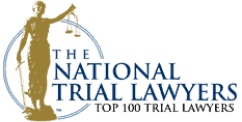Estate: Terms To Know, What To Do If Your Loved One Didn’t Have A Will
The devastating new reality a family has to accept following the loss of a loved one can be overwhelming and full of a mixture of powerful emotions. It can be difficult to discern how to proceed and what needs to be done. Frequently, when a family member passes away and leaves no will, it can be a challenge to figure out what to do with their belongings and estate.
An excellent resource for everything you need to know about estates and what to do after the loss of a family member is the best-selling book by Kyle Bachus titled “Unthinkable.”
Bachus & Schanker Wins – Over $1 Billion Recovered
What is Estate Planning and What Does it Involve?
Estate planning is a process that involves professional advice regarding your assets and how they are owned. This process covers the transfer of property at the time of death. One step of this process is the writing of a will. Estate planning can be complicated, and it is beneficial to call in a professional to assist. An estate planning lawyer can help make this transition smoother and answer any questions you may have.
The legal advice an experienced attorney provides is essential to effectively executing an estate plan. What a person works to achieve in their lifetime is nothing to take lightly. Having the guidance of a professional can ensure that assets are dispersed as desired.
Estate planning can include a number of documents such as wills, powers of attorney, and trusts. If you do not have an estate plan or will, then the government decides who is granted your estate and what to do with it. This process is known as probate.
What Happens if Someone Dies and There is No Will?
The passing of a loved one is a whirlwind. There is a long list of things that needs to be done, and how to go about doing the tasks is a daunting question. You may ask who is entitled to their belongings or how they should be distributed. If your family member left a will, they have already thought about this question and have their possessions designated where they want them to go. This is part of the previously mentioned process known as estate planning. However, not everyone leaves a will to specify their desires.
When this happens, state law dictates the distribution of their belongings. The legal term for the possessions your family member leaves behind is known as their estate. This matter may be managed in probate court by a probate judge.
Who Inherits if There is No Will?
Laws from state to state vary, but they do have some similarities regarding what happens to an individual’s estate should they pass without a will. In most cases, the court first looks at whether or not there is a surviving spouse. This is followed by surviving children. The court may then decide on the shares each individual receives.
In his book “Unthinkable.” Kyle Bachus discusses Colorado’s guidelines on this matter. The first $100,000 of the estate is bequeathed to the spouse. Should there be any remaining estate, 50% is awarded to the spouse, and 50% is divided amongst the children.
In the event that there is no surviving spouse, the children are awarded the assets. If there are no children and no spouse, then the parents of the deceased are awarded the estate. Should the situation arise where there is no surviving spouse, children, or parents, then state laws dictate who is next in line to receive the estate.
Life insurance and retirement accounts fall outside of the above-mentioned state guidelines. When these accounts are created, the beneficiaries are already stated within the documents. These accounts are distributed to the beneficiaries named on the policies.
Who is the Executor of an Estate Without a Will?

If there is no will and subsequently no appointed executor of the will, this matter is decided in probate court. The probate judge will utilize the intestate succession law to dictate who will be appointed the executor of the estate. A letter of administration will be issued to the appointed executor authorizing them to carry out their responsibilities.
The executor of the estate is not the same as Power of Attorney (POA). At the time of death, Power of Attorney is no longer valid. The only exception to this is with a non-durable Power of Attorney. This form of POA ends only when the individual is deemed incompetent.
What Happens to Someone’s Bank Account When They Die?
If the bank account is jointly held, then the account will pass on to the other individual who is named on the account. This is termed joint tenancy and holds true regardless of what a will says. If it is an individual account, it is awarded to whomever it was designated by the person who opened the account. In the event that no one is named to inherit the account, the account becomes part of the estate.
Legal Support After Wrongful Death
Finding the right legal support following wrongful death can be difficult. Meeting the standard of proof, understanding wrongful death statutes, and taking wrongful death action is a lengthy process following the death of a loved one due to negligence or misconduct. Kyle Bachus, personal injury attorney, has the resources and the experience to assist you in gaining financial support, damage awards, punitive damages, and the lost prospect of inheritance. His understanding and experience in wrongful death lawsuits can benefit you in regaining some of what was lost following the death of a loved one.
Kyle Bachus and his team of professionals are ready and willing to assist you and your family with everything you need to know following a wrongful death. Our legal team has locations throughout the state of Colorado for your convenience.
Sources:
Estate Planning Info & FAQs. (2022).
Probate Process. (2022).
You Deserve Fair Compensation
Don’t let the insurance companies intimidate you into accepting less than you deserve. We’re ready to fight for you.

Written and Legally Reviewed By: Kyle Bachus
4.6 ★★★★★ 1,461 Google Reviews
Kyle is a member of the Colorado and Florida Bar associations and has served on the Board of Directors of the Colorado Trial Lawyers Association for more than twenty years in total. Over the years, Kyle has achieved justice for many clients. He has served on numerous committees and repeatedly won recognition from his peers at both the state and national level. He is proud of the role he has played in the passage of state and national legislation to protect consumers and is a frequent speaker and guest lecturer.







